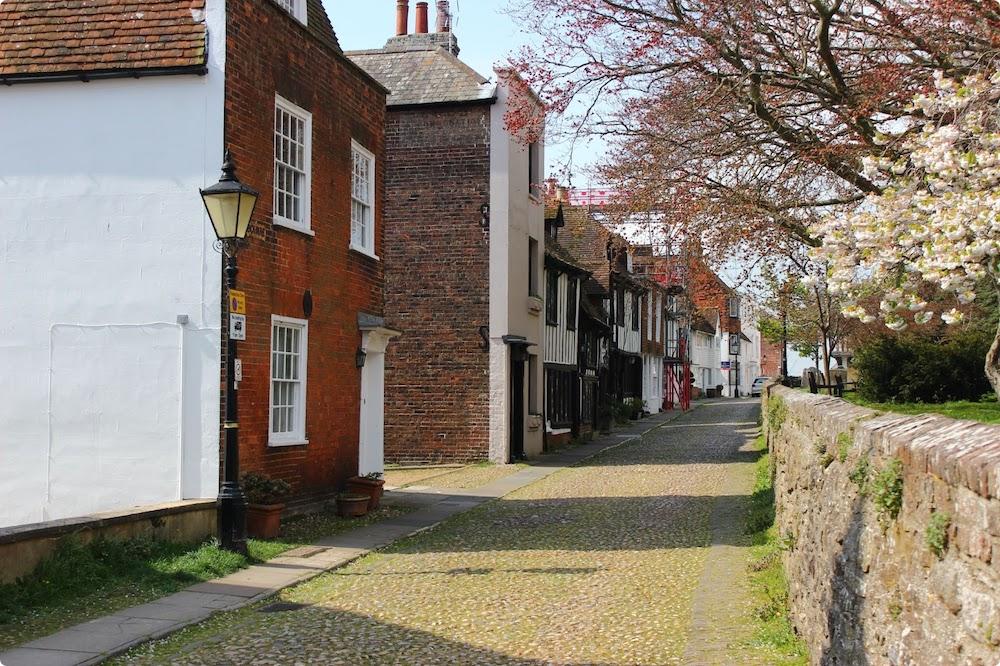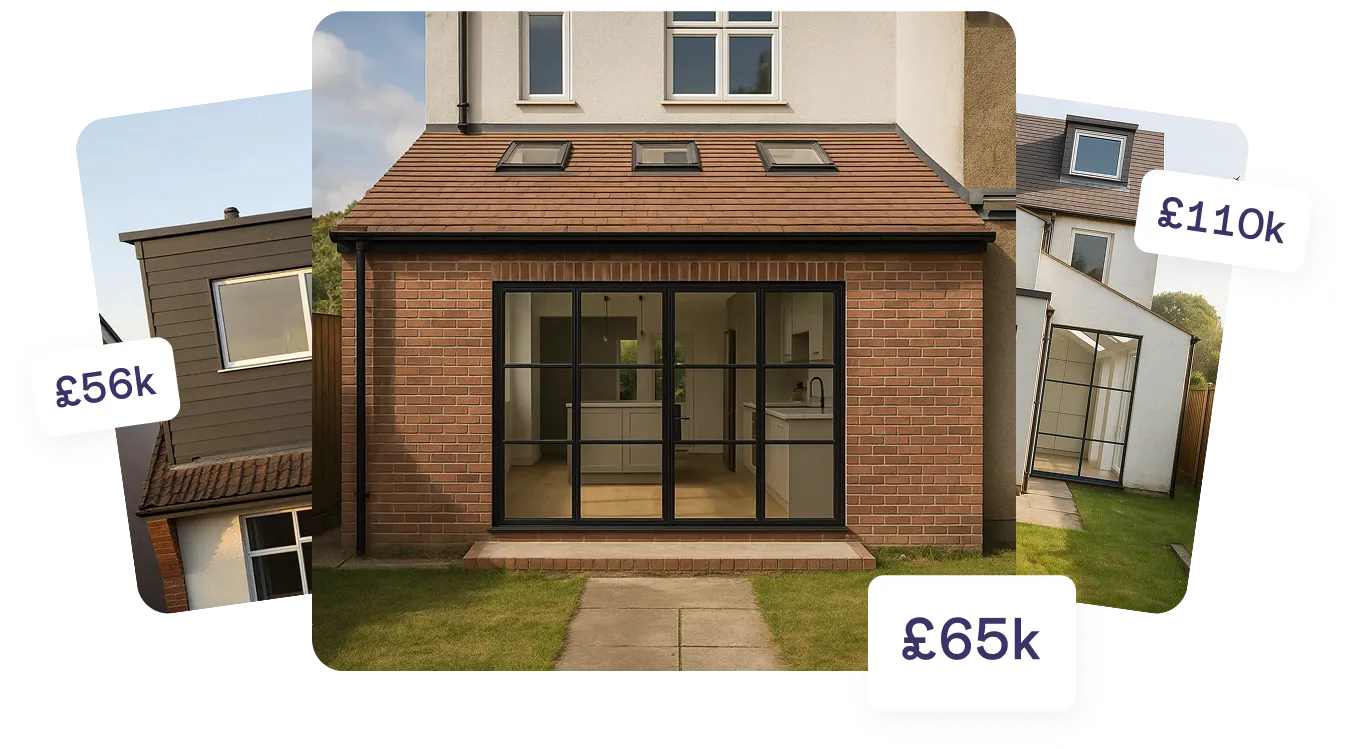Increasing numbers of people are entering onto the property ladder with future renovations in mind. This could be down to the soaring cost of properties in the UK making buying a home that doesn’t need any work an unattainable dream for many. Or it could be a reflection of our enthusiasm for a bargain and for building something from scratch.
Whatever people’s individual reasons for buying a home that requires renovation, there are some key things to keep in mind while you’re window shopping for properties that could save you hassle and worry down the line. With our experience in mind, we run through the top things to look out for in an existing property if your aim is to renovate.
Location, location, location
Now, this might be an obvious one but it’s worth being really clear about what you’re looking for in a location for your new property and why. We recommend drawing up a list of must-haves and definitely-nots to make sure you don’t get swept up by the size or scope of a property or the bargain price and overlook the area where you’ll be living. Here are some of the most important things to consider when it comes to location.

Get to know the local(area)s
First things first, if you’re looking to invest in a property that you’re hoping to renovate and live in, it’s vital that you like the local area. Think about what you love about your current location and what could be improved – make a list and look for areas that fit the bill.
Consider things like access and distance to amenities, how close the nearest schools are, whether it’s important to you to have a local coffee shop, pub, library or local gym. It could be the opposite: is your property close enough to a quiet coastal path, near enough a scenic walkway and set back far enough from main roads? It’s also worth sussing out whether you have suitable transport links or, if they aren’t available, whether you’re comfortable and able to rely on your car.
Whatever it is that you like to do in your spare time, make sure you’re investing in a property that can offer those things on your doorstep.
Identify the red tape
If you’re looking for a new property that is suitable for renovating then it’s really important that you do your research and find out what restrictions (if any) exist in your area. Look out for whether your property falls within a Conservation Area or an Area of Outstanding Natural Beauty.
Both area designations are in place to protect or enhance the existing area, either for their architectural, historical or natural significance. As a result, certain limitations are in place when it comes to building and construction, meaning that you may be restricted by the kind of work you can get done to your property.
Check if the property you’re interested in falls into one of these areas by getting in touch with your local planning authority or seeking advice from our experienced Planning team.
Work out how to get around
This is a point that’s more relevant to enjoying where you live long-term than what renovations you’re allowed to make on your property, but it’s no less important. If you don’t work remotely, it’s worth checking out how long it’d take you to get to work and how expensive that commute could end up being.
No matter how pretty the location or how much potential your house may have, if living there and travelling to work alone is going to put a significant strain on your finances (not to mention your energy levels!), it could be worth considering somewhere better connected or plucking up the courage to strike a WFH chat with your employer.
What makes it unique?
Identifying the things that make prospective properties unique and considering how they may impact any future plans you have to renovate could save you stress and hassle down the line. It could also be a fantastic way of informing what kind of renovations you’re interested in and what elements of the existing property you’d like to preserve. Explore our key considerations related to the uniqueness of your property before investing.

Get to know the party (wall) rules
If you’re buying a property thinking of possible renovations, it’s really important to find out whether there are any existing disagreements over party walls. This will offer a good indication of relations with neighbours over renovations and give some vital insight into how easy or difficult it may be to get your future plans approved.
Measure the space
It goes without saying that if renovations are in your sights (particularly home extensions), you’ll need to assess whether there’s unused space around your property and whether your plans might be achievable under permitted development. If you’re considering a rear extension, you’ll need available back garden space that you don’t mind carving into. It’s also important to make sure that you won’t be impacting any trees protected by Tree Preservation Orders outlined by local planning authorities.
Are you on the list?
It’s unlikely that you’ll be looking into buying a listed property without knowing about it (the previous owners or the estate agents will likely highlight it as a huge selling point). However, if you’re unsure, use this search tool created by Historic England to find out whether you live in a listed building.
The buildings will fall into different grading systems which you can learn more about here. But the predominant takeaway is that some restrictions to what renovations you’re able to make may be in place as a means of safeguarding its architectural, historical or national significance.
To get some further insight into what renovations or extensions could be possible if you were to buy a listed property, get in touch with our expert Planning team for a free consultation call.
Find your best features
Even in some of the most run-down properties, there may be a unique feature that captures your imagination and feels important for you to hold onto. It could be a beautiful bedroom fireplace in an old Victorian property or old Edwardian parquet wooden floors.
Specifying what it is you love about your prospective home will provide great insight when it gets to designing ideas for your renovation. Try out our Quick Quote calculator to see how much the project you have in mind could set you back.
Where are we now
Before you buy a property with the view to renovate it, it’s really important that you have a good sense of the state that it’s currently in. This will provide a useful guide to just how much work (and how much it might cost you) is ahead. Look out for structural problems, lack of insulation, leaks, damp ancient pipes and central heating systems.
Sense the energy
Take the Energy Performance rating of your prospective property into consideration before you invest. It’s a great gauge of how energy-efficient it is and therefore offers an insight into how much it’ll cost to run (simply put, the less efficient it is – the more expensive your bills are going to be). The EPC rating of your property should be outlined on your property’s listing but, in case it’s not, make sure that this is something you clarify with the current owner or the agent working on it. As well as this, make enquiries about the age and functionality of the central heating.
According to our recent research, energy efficiency and cost to run the home are increasing in importance for people and have a direct impact on how satisfied they are with their homes. In light of this, it’s worth knowing so you can a) decide whether you can and are willing to invest in improving your home’s performance or b) can’t afford to make the necessary changes that’ll make it comfortable to live in.
See how much your home extension could set you back with our Quick Quote calculator – it’s a great way of measuring whether construction works could fall within your budget.







